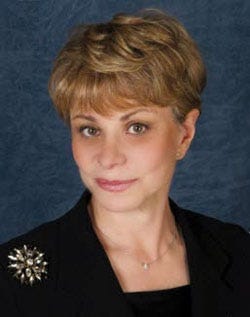5 Questions on Dangerous Documents with Nancy Singer
What is so dangerous about the documents you keep? Nancy Singer answers 5 questions about how FDA records and internal e-mails can pose a threat and what medtech firms can do to protect themselves.
January 4, 2012

 1.How can a record be a “land mine”?
1.How can a record be a “land mine”?

“Land mine” is a term we use for a record buried in your company’s files. If discovered in a lawsuit, it will blow up and cause havoc. Even an innocuous phrase in a private email from one of your employees such as “This will negatively impact the bottom line,” could be a land mine. In a products liability action, a plaintiff’s lawyer could use this statement to undermine the credibility of an organization
2.What should companies do to prevent land mines in their organizations?
Top management must accept that this is a problem and see the need to change the corporate culture, so that every employee knows that he or she is an ambassador of the firm. All written communication should reflect the commitment to make safe and effective products that comply with applicable government regulations.
3.How can companies avoid having “dangerous documents” in their files?
Top management can:
Make appropriate communication a core value in the organization.
Define expectations that employees will communicate in an appropriate manner.
Educate employees on how to write professional communication.
Evaluate employees’ writing during annual performance evaluations.
4. How can companies use training to change employee behavior?
Companies should organize half-day training sessions where the instructor asks participants to analyze company documents from the perspective of an FDA investigator or a plaintiff’s lawyer. Simulating a trial can be effective by asking volunteers to defend company documents. Exercises in rewriting memos can help participants improve their writing skills.
5.Who is the best person to present the training?
An in-house quality or regulatory person can develop the curriculum and present the information. The educational experience will be enhanced when the presenter partners with a lawyer who has prosecuted or defended companies and can tell stories where the reputations of companies and individuals were damaged.
Nancy Singer founded Compliance-Alliance LLC to help professionals employed in the drug and medical device industries to establish a culture of compliance. Previously she was AdvaMed’s special counsel. Her career began as an attorney with the United States Department of Justice where she did litigation for the Food and Drug Administration. Subsequently she was a partner at the law firm of Kleinfeld, Kaplan and Becker. Ms. Singer teaches a course on “Dangerous Documents: Avoiding Land Mines in Your Emails and FDA Records” that she has presented to 50 companies and over 500 FDA investigators, compliance officers and reviewers.
About the Author(s)
You May Also Like


